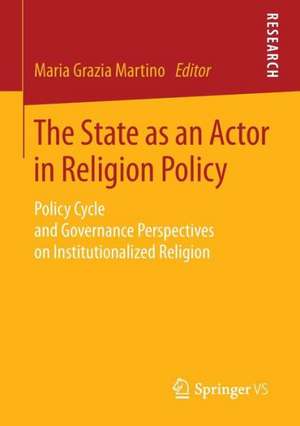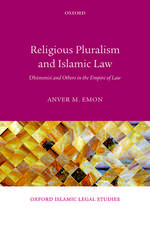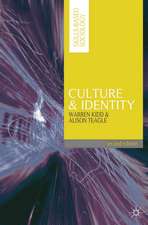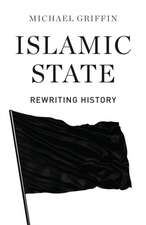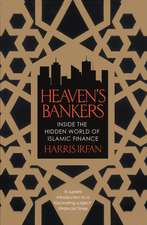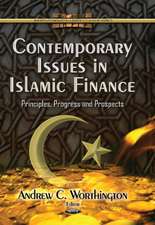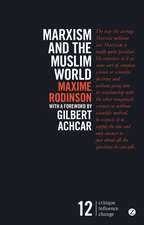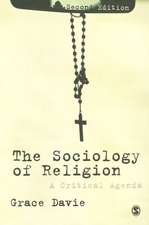The State as an Actor in Religion Policy: Policy Cycle and Governance Perspectives on Institutionalized Religion
Editat de Maria Grazia Martinoen Limba Engleză Paperback – 8 sep 2014
Preț: 413.84 lei
Nou
Puncte Express: 621
Preț estimativ în valută:
79.20€ • 82.47$ • 66.93£
79.20€ • 82.47$ • 66.93£
Carte tipărită la comandă
Livrare economică 11-25 martie
Preluare comenzi: 021 569.72.76
Specificații
ISBN-13: 9783658069445
ISBN-10: 3658069449
Pagini: 177
Ilustrații: VIII, 171 p.
Dimensiuni: 148 x 210 x 12 mm
Greutate: 0.24 kg
Ediția:2015
Editura: Springer Fachmedien Wiesbaden
Colecția Springer VS
Locul publicării:Wiesbaden, Germany
ISBN-10: 3658069449
Pagini: 177
Ilustrații: VIII, 171 p.
Dimensiuni: 148 x 210 x 12 mm
Greutate: 0.24 kg
Ediția:2015
Editura: Springer Fachmedien Wiesbaden
Colecția Springer VS
Locul publicării:Wiesbaden, Germany
Public țintă
ResearchCuprins
Germany and Religion, Does Islam belong to Germany?.- Switzerland: No Religious Peace without Public Arrangements.- Denominational Influence on Religion Policy after the State Church?.- Dealing with Religious Diversity: Aims and Realities of Religious Education in Sweden.- European Turks in-between Local and Transnational Islamic Networks.
Notă biografică
Dr. Maria Grazia Martino studied Political Science at the universities of Constance and Tübingen. Since 2013, she holds a lecturer position for Political Theory at the Otto Suhr Institute of Political Science at Freie Universität Berlin.
Textul de pe ultima copertă
Churches and religious communities are actors from civil society. The state sets the framework for their activities, first and foremost by formal legal acts in ecclesiastical law. Besides this field of law, religion policy has increasingly developed into a policy field of its own. Which incentives and steering tools used by the state cause which kind of behavior, which role in society and which self-understanding among churches and religious communities? This edited volume answers these questions. Maria Grazia Martino and her contributing authors highlight the different solutions found by European countries with different ecclesiastical law systems, different distributions of Christian denominations and different percentages of Muslim immigrants: Germany, Switzerland, France, Sweden, Italy and Greece.
Contents
Dr. Maria Grazia Martino studied Political Science at the universities of Constance and Tübingen. Since 2013, she holds a lecturer position for Political Theory at the Otto Suhr Institute of Political Science at Freie Universität Berlin.
Contents
- Germany and Religion, Does Islam belong to Germany?
- Switzerland: No Religious Peace without Public Arrangements
- Denominational Influence on Religion Policy after the State Church?
- Dealing with Religious Diversity: Aims and Realities of Religious Education in Sweden
- European Turks in-between Local and Transnational Islamic Networks
- Scientists and students in the field of political sciences, especially religion
Dr. Maria Grazia Martino studied Political Science at the universities of Constance and Tübingen. Since 2013, she holds a lecturer position for Political Theory at the Otto Suhr Institute of Political Science at Freie Universität Berlin.
Caracteristici
Religion Policy in Europe A Systematization Includes supplementary material: sn.pub/extras
